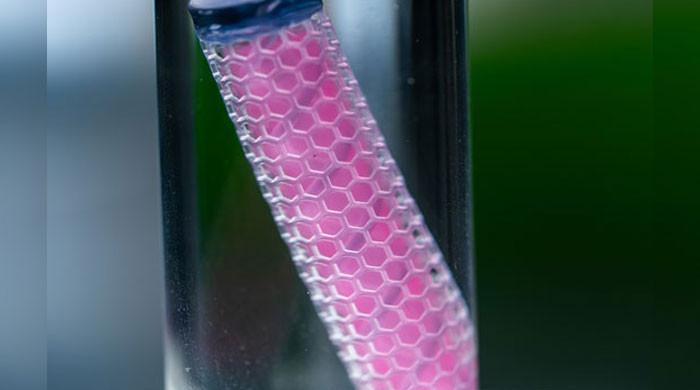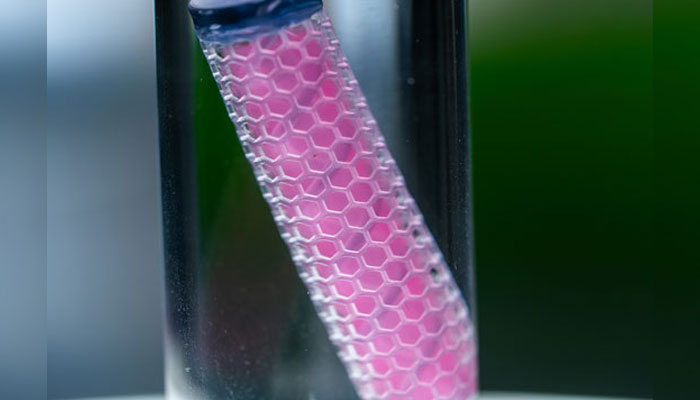
Researchers working on implant device to cure cancer with mobile app in 60 days
[ad_1]

A team of scientists at Rice University has received $45 million in funding from the Advanced Research Projects Agency for Health to develop a novel, implant-based treatment system that could reduce cancer death rates by 50%.
The system, called “sense-and-respond implant technology,” aims to improve the outcomes of immunotherapy treatments for cancers that are typically hard to treat.
With this technology, curing cancer could be as simple as a few taps on a mobile device, the New York Post reported.
“Instead of tethering patients to hospital beds, IV bags and external monitors, we’ll use a minimally invasive procedure to implant a small device that continuously monitors their cancer and adjusts their immunotherapy dose in real-time,” Omid Veiseh, a bioengineer at the university and principal investigator on the project, said in a statement.
The three-inch implant, or “hybrid advanced molecular manufacturing regulator” (HAMMR), would supply immunotherapy medications to the patient in a “closed loop” method, similar to diabetes treatments using insulin pumps.
Additionally, wireless communication will be used by the rechargeable gadgets, “potentially with a smartphone,” researchers told KHOU 11.
However, researchers hope that the implant will only be needed for short-term use — eradicating the cancer in as little as 60 days.
“Cancer cells are continually evolving and adapting to therapy,” Dr Amir Jazaeri, a co-principal investigator and professor of gynecologic oncology at the University of Texas MD Anderson Cancer Center, said in a statement.
“However, currently available diagnostic tools, including radiologic tests, blood assays and biopsies, provide very infrequent and limited snapshots of this dynamic process. As a result, today’s therapies treat cancer as if it were a static disease,” his statement continued.
Instead, their device will speed up therapy by providing “real-time data from the tumour environment that can in turn guide more effective and tumour-informed novel therapies” and acting as both a cancer monitoring and medication administration system.
“The technology is broadly applicable for peritoneal cancers that affect the pancreas, liver, lungs and other organs,” said Veiseh.
The project name is THOR, which stands for “targeted hybrid oncotherapeutic regulation,” and the research team is made up of specialists from a variety of professions working across 20 facilities in seven states.
The effectiveness of the implant in treating recurrent ovarian cancer will be examined in the initial clinical study and within five years, they want to start conducting human trials.
Last year, Veiseh’s team demonstrated the effectiveness of “drug factory” technology in mice, eradicating late-stage ovarian and colorectal cancers in six days.
They’re now able to “build on that experience” with clinical trials, Veiseh said, with HAMMR as “the next iteration of that approach.”
[ad_2]
Source link







